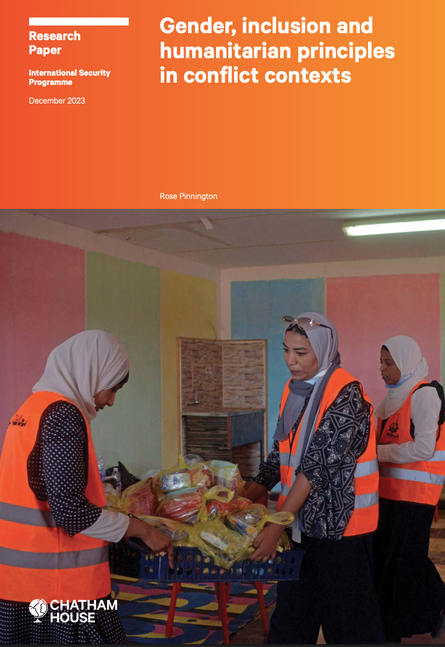Research Paper International Security Programme

The promotion of gender equality and the curtailment of marginalization are fundamentally aligned with the principle of humanity, as reflected in the humanitarian sector’s goals to alleviate suffering and preserve dignity in conflict contexts. However, as recent events such as those in Afghanistan demonstrate, humanitarian agencies face challenges and dilemmas in their efforts to provide impartial, gender-responsive assistance, particularly where there is systemic gender-based marginalization.
The focus in this paper is the compatibility of humanitarian principles, particularly impartiality and neutrality, with growing efforts to pursue gender equality within humanitarian action in conflict contexts. The paper draws on the insights and information shared by participants at a series of workshops that examined policy and practical approaches to the application of the principles, as well as the internal and external challenges facing humanitarian agencies attempting to work in accordance with the principles.
The objective of this paper is to apply a gender lens to some of the key issues that have arisen through these workshops. The paper focuses on three specific issues in this regard:
- the role and limits of impartiality in the pursuit of gender equality;
- efforts to promote the role of conflict-affected women, girls and gender-diverse people in humanitarian action; and
- the potential of integrated approaches that coordinate across humanitarian, development and peace goals to support longer-term objectives.
The paper draws on the cases that were shared in these workshops, including examples from Afghanistan, Myanmar and South Sudan. In developing recommendations, the paper takes both a short-term operational perspective and a longer-term strategic one.